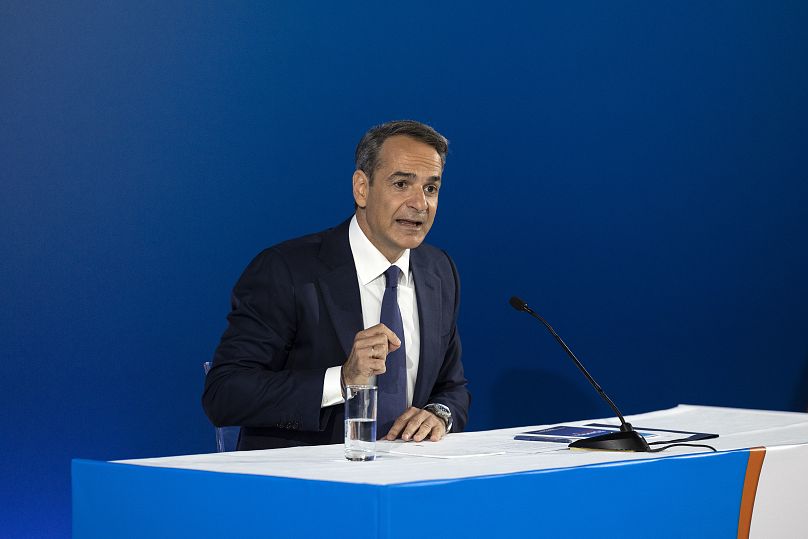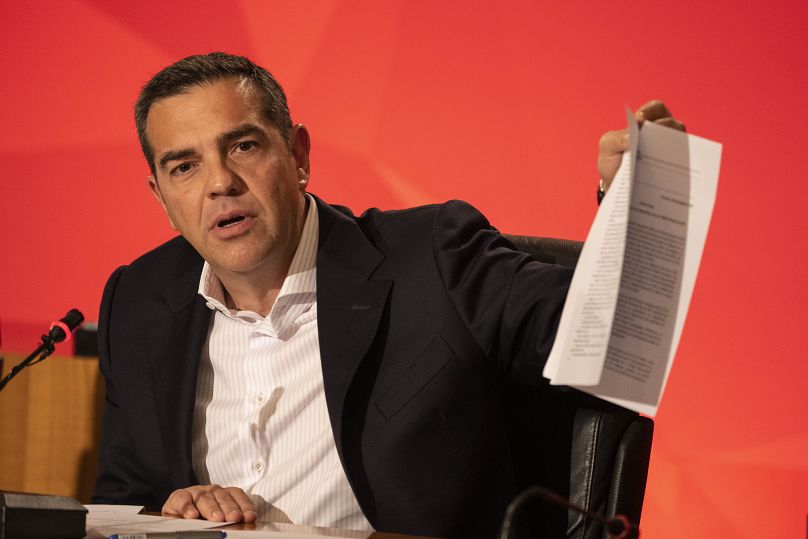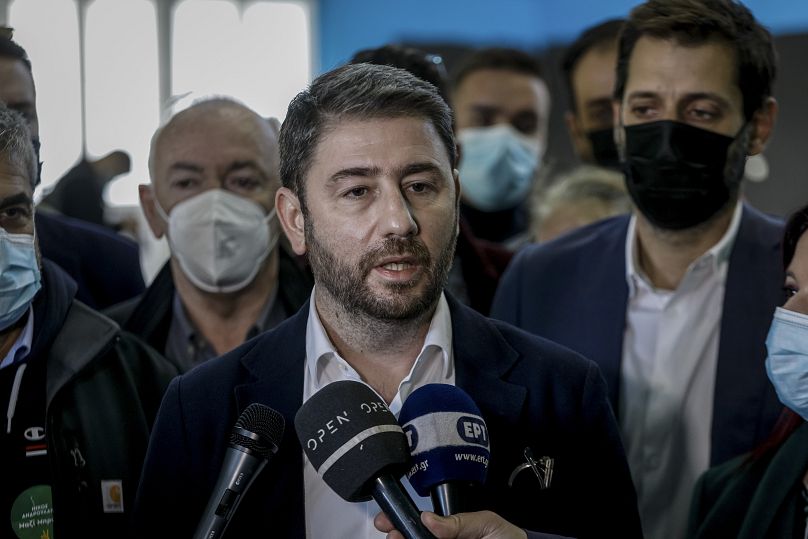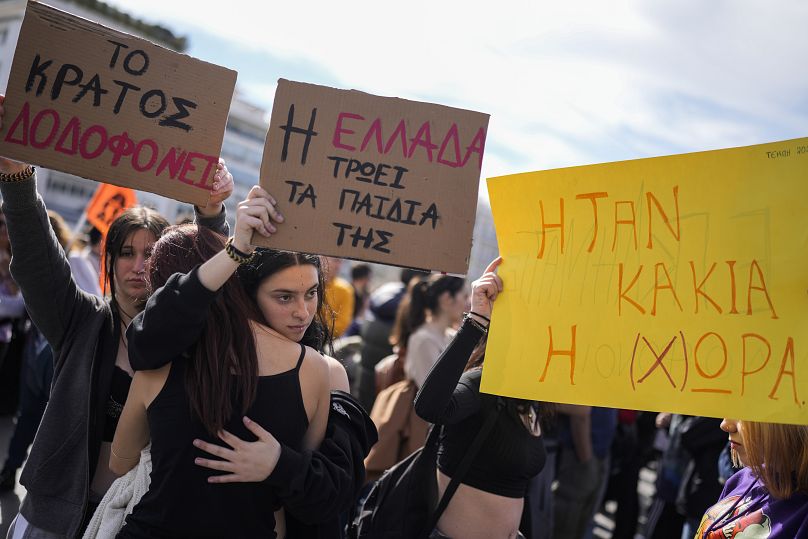As Greeks prepare to vote in a general election on 21 May, we take a look at which parties and candidates are in the running, who is ahead in the polls, and what else to expect.
Greece will head to the polls on 21 May for parliamentary elections which experts predict will be unlikely to produce an outright winner in the first round.
 ADVERTISEMENT
ADVERTISEMENT
 ADVERTISEMENT
ADVERTISEMENT
There are around 9.8 million registered voters, including 440,000 young people, aged 17 to 21, who are eligible to vote for the first time.
For the first time, Greeks living abroad will also be able to vote, on 20 May, without having to return to Greece.
So who are the main parties and candidates running, what are the polls suggesting, and how does it all work in practice?
Which are the main parties?
Prime Minister Kyriakos Mitsotakis’ ruling conservative New Democracy party currently holds 158 seats - a majority - in the 300-seat Hellenic Parliament.
During campaigning for this election, it promised to build on tax cuts delivered in its first term, achieve 3% annual growth, boost foreign direct investment and cut unemployment to less than 8%.
In his first term, Mitsotakis focused on security issues, strengthening the police, and making major arms deals, especially with France.
Immigration was also a major policy area. The metal barrier along the border with Turkey was extended in the face of what the prime minister describes as a migratory "threat".
The left-wing SYRIZA party, of former Prime Minister Alexis Tsipras, was ousted by New Democracy in the 2019 parliamentary elections.
The party wants to increase wages and pensions, cap profit margins in the energy sector, reduce weekly working hours, protect minority rights and abolish Greece’s bank rescue fund (HFSF).
Nikos Androulakis' centre-left Pasok-KINAL, or Movement for Change, is Greece's third-largest party or coalition, securing 22 seats in 2019.
The party is pushing for a green transition away from coal and natural gas, a stronger national healthcare system, a boost to public sector wages, and improved transparency and meritocracy in the state.
Who is leading in the polls?
New Democracy is currently ahead in the polls, leading SYRIZA by around 7 percentage points. Pasok-KINAL is currently polling third. Eva Kaili, the ex-Vice-President of the European Parliament implicated in an alleged cash-for-influence scandal, was dismissed from the Pasok-KINAL party in February.
SYRIZA's leader Alexis Tsipras urged voters "Don’t look at the polls," after his party's request for more transparency from pollsters - specifically asking them to publish the primary data of their surveys - was snubbed by both New Democracy and the Association of polling companies.
Prime Minister Mitsotakis is blamed by some in Greece for the worst rail disaster in the country's history which killed 57 people, leading many experts to predict a drop in support for his party in the polls.
In spite of the mass protests that immediately followed the accident, Euronews Greece reports that public anger was aimed not just at the current government, but at Greece's entire political system.
Relatives of the victims filed a lawsuit against 17 people on 16 May, just days before the election. The prime minister, former and current transport ministers, former and current presidents and directors of the Greek Railway Organization (OSE), and the Hellenic Train Company are all named in the lawsuit.
How does the electoral system work?
Voters will elect members of the Greek parliament under a proportional representation system. Parties must secure at least 3% of the votes to enter parliament for a four-year term. Those who reach this threshold will share 285 parliamentary seats based on their percentage share.
12 seats will be shared among state deputies elected by each party, and the final three seats are filled by candidates elected by Greeks voting abroad.
Parties must secure at least 3% of the votes to enter parliament for a four-year term.
Pollsters say this time, the leading candidate could need 46% of the vote to win outright. If no party achieves this, the vote will likely result in a hung parliament, as no party looks set to secure a majority of the vote, and the three top parties have already revealed they do not wish to work with each other.
Failure to form a coalition government after 21 May would mean a repeat election will be held in early July using an enhanced proportional representation system.
The party that secures the most votes this time will receive a 20-seat bonus if it gets more than 25% of the share. This bonus increases with the party’s percentage of the vote.
Parties that win 40% of the votes can secure a maximum of 50 bonus seats.














